FC Barcelona’s Dani Olmo: A Magician and Mirror for the Future
|Shane Anderson
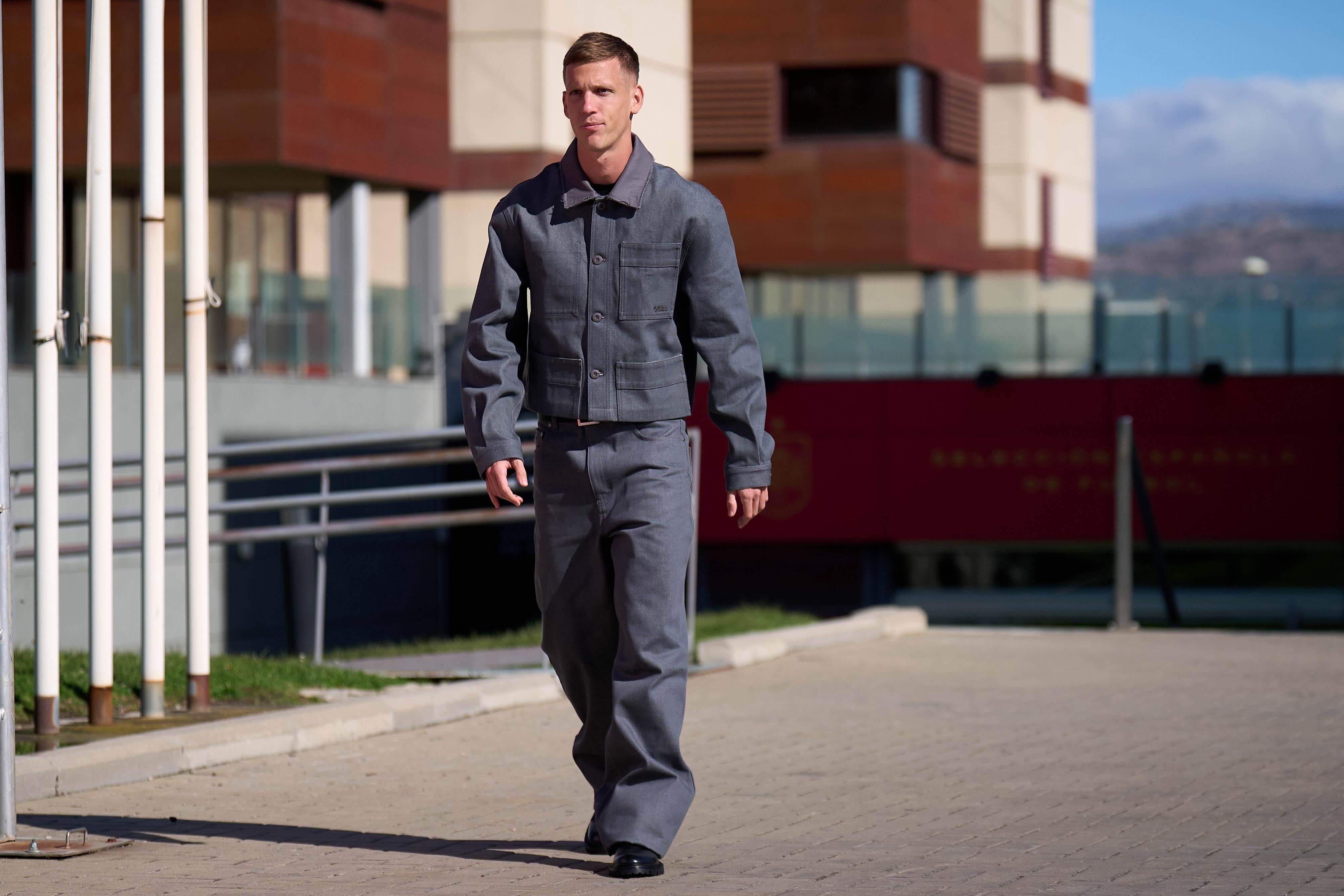
Forget Paris and Milan. The new runway is the garage inside the stadium, where athletes show off their looks. Instagram accounts such as League Fits document the rising sartorial interest in American sports, yet it is still nowhere near as established in European football.
That’s where Dani Olmo comes in. Today, the Spanish star responsible for one of the biggest goals in the 2024 Euros (and later a huge assist) wore 032c Readytowear for his arrival at the Spanish national team’s first training after summer break. Forging new paths is nothing new for Olmo. Though he joined La Masia Academy at the age of 9 as would be expected of a high-caliber Spanish player, he left his homeland at the age of 16 to join Dinamo Zagreb, something that was pretty much unheard of at the time. Olmo, who was once named best midfielder in the Bundesliga by Kicker, now plays for Barcelona, and spoke to Shane Anderson about his past in Zagreb and Leipzig, his current chess rating, and what his future might look like after he stops playing.
Shane Anderson: Dani “Kofi” Olmo—
Dani Olmo: [Laughter] Ah, Leipzig.
SA: You seem to be someone who embraces different cultures.
DO: I guess it’s because I’m used to living outside of Spain. I moved to Croatia at 16 and then later moved to Leipzig to play for RB Leipzig, a club that had players from many different nations. There I met Benny Henrichs, a German player with Ghanian roots. “Kofi” came from the time when Benny took me to try African food.
SA: Before that, you were in Zagreb, where you played for Dinamo. But you started your career at a very young age, when you attended the La Masia Academy in Barcelona. It’s not very common for Spanish players to leave such a prestigious program in Spain and go to Croatia, right?
DO: It was a tough decision. I had been in Spain all my life and was at one of the best academies in the world, but I knew that leaving was the right thing to do. It was more common for players to go to England at the time but Dinamo saw me as a project. They wanted me to become a “player,” if you know what I mean, and they really pushed me. I knew that they were going to give me the chance to have opportunities since they really trust young players to play for their first team. This was really helpful for me to develop my game.
It also helped me grow as a person. I learned the language and a lot about the culture. I also met a lot of people who had lived through the Balkan Wars and I played in places where the war took place. Even though I’m no longer there, Croatia is still important to me. I collaborate with Common Goal and give a percentage of my income to Croatia—to these families and kids who have been through the war. I’m trying to help them through sports.
SA: In what ways?
DO: To have as normal of lives as possible. Team sports like soccer or basketball are great ways to make friends, have fun, and socialize. And with these kids, who maybe lost their parents or other families during the war, it’s very important to me to see them have fun.
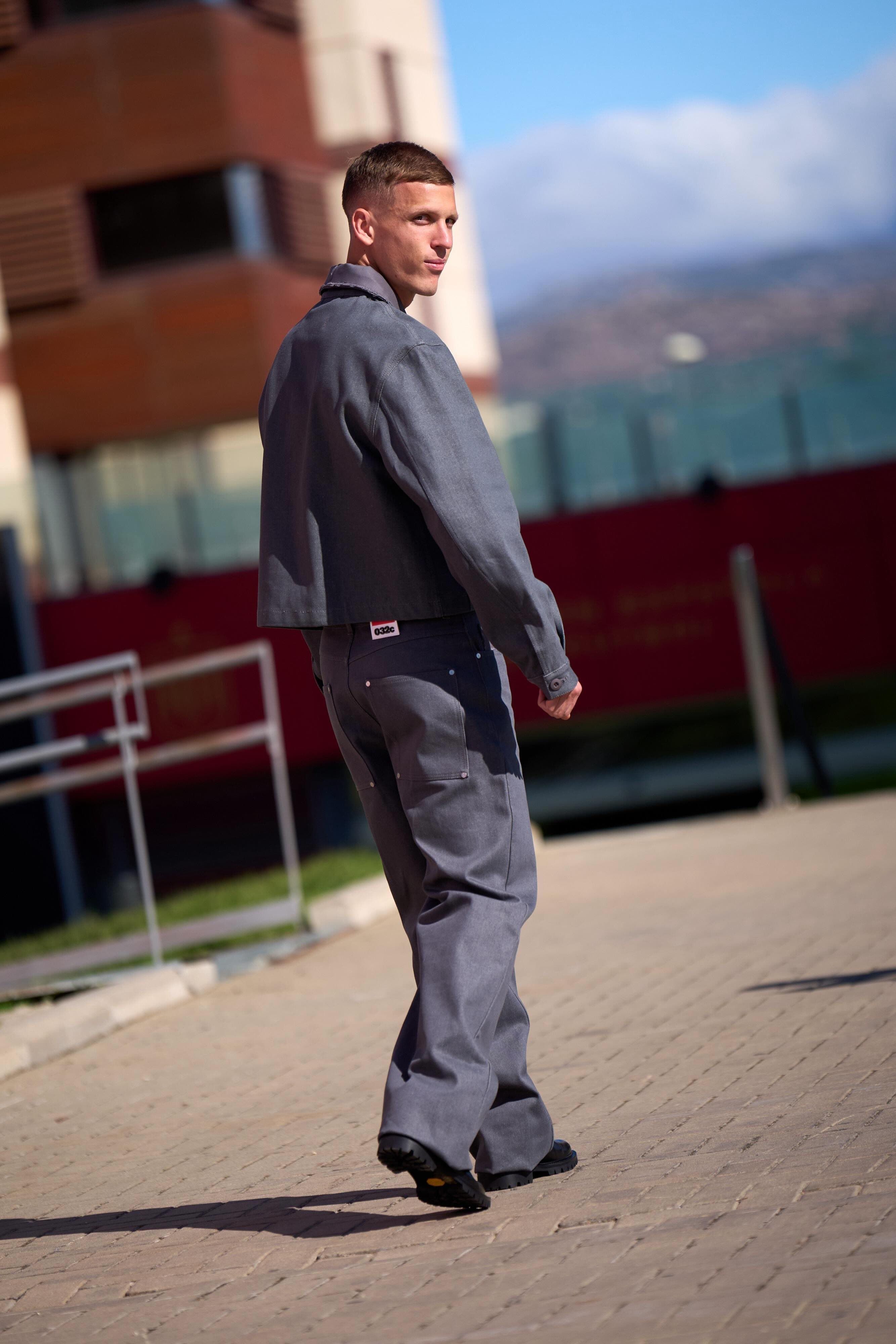
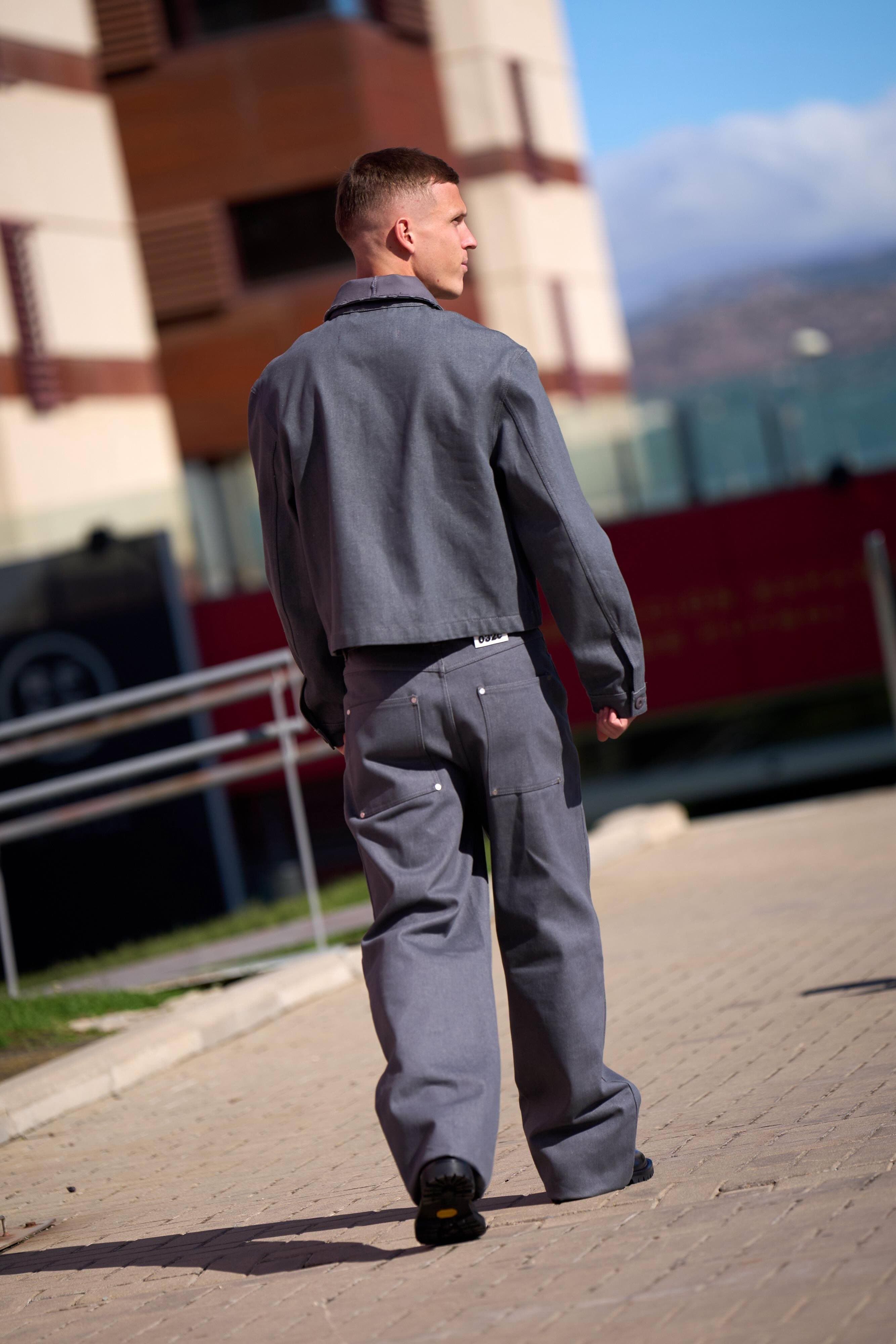
SA: But now you play for your home team. That’s every kid’s dream, isn’t it?
DO: Yes, it is. I always wanted to come back to Barcelona, be here with my family, and play for the best club in the world.
SA: You also play for the Spanish national team, where you took the jersey number 10. Historically, it’s reserved for the best players: Messi, Pelé, Zidane, Maradona—all legends of the game. It’s a fairly bold statement.
DO: It comes with a sense of responsibility, for sure. It’s reserved for the best of the best but I had the possibility to take it for the national team. I also wore the number in my youth, like when I was on the Spanish under 21 team.
SA: What is the responsibility, exactly?
DO: It has to do with my position. I’m an offensive midfielder, and the offensive game goes through me. As a playmaker, my role is to make the team play better. And so, the number 10 position is the one who connects everything, which comes with responsibility.
SA: There’s this term in German Rasenschach, or lawn chess, for soccer. I understand you also play chess. Do you see any similarities between chess and soccer?
DO: I think there are since it’s all about tactics. They’re not exactly the same, of course, but in both you can anticipate what your opponent is going to do. You might think they’re going to do one thing but when they do something entirely different, you have to react and improvise. For example, you’re always told to run deep behind the line on offense. But sometimes, you have to do something else. It’s about always finding the small advantages and spaces. You just have to move properly to find the space and trust that your teammates will find you. And then, it’s up to you…
SA: What’s your rating in chess?
DO: It could be better. I’m only at 1200 right now.
SA: Yeah, it could be better.
[Laughter]
SA: What’s your favorite opening?
DO: It changes a lot. When I have the white pieces, I push the pawn to b2—
SA: The modern opening—
DO: And sometimes, I like to overload one side and attack from the other. One of my teammates bought me this book How to Win at Chess, which he gave me because he was beating me all the time.
SA: Do many soccer players play chess?
DO: There aren’t many on the team right now. But on the national team, there’s Unai Simón, and we play almost every day. Right now, we have a game going on with three day moves.
SA: As you mentioned, tactics are important for both. You’re also understood as being one of the greatest tacticians in soccer.
DO: In Leipzig, they called me “El Mago,” the magician. And now the fans in Barcelona are embracing that too. I guess the idea is my ability to play in small spaces and to find solutions in difficult situations—to always find the hard pass or good pass and not make mistakes. It’s about making the hard things look easy. This is something others say about me, by the way. But I’m learning to embrace it, too.
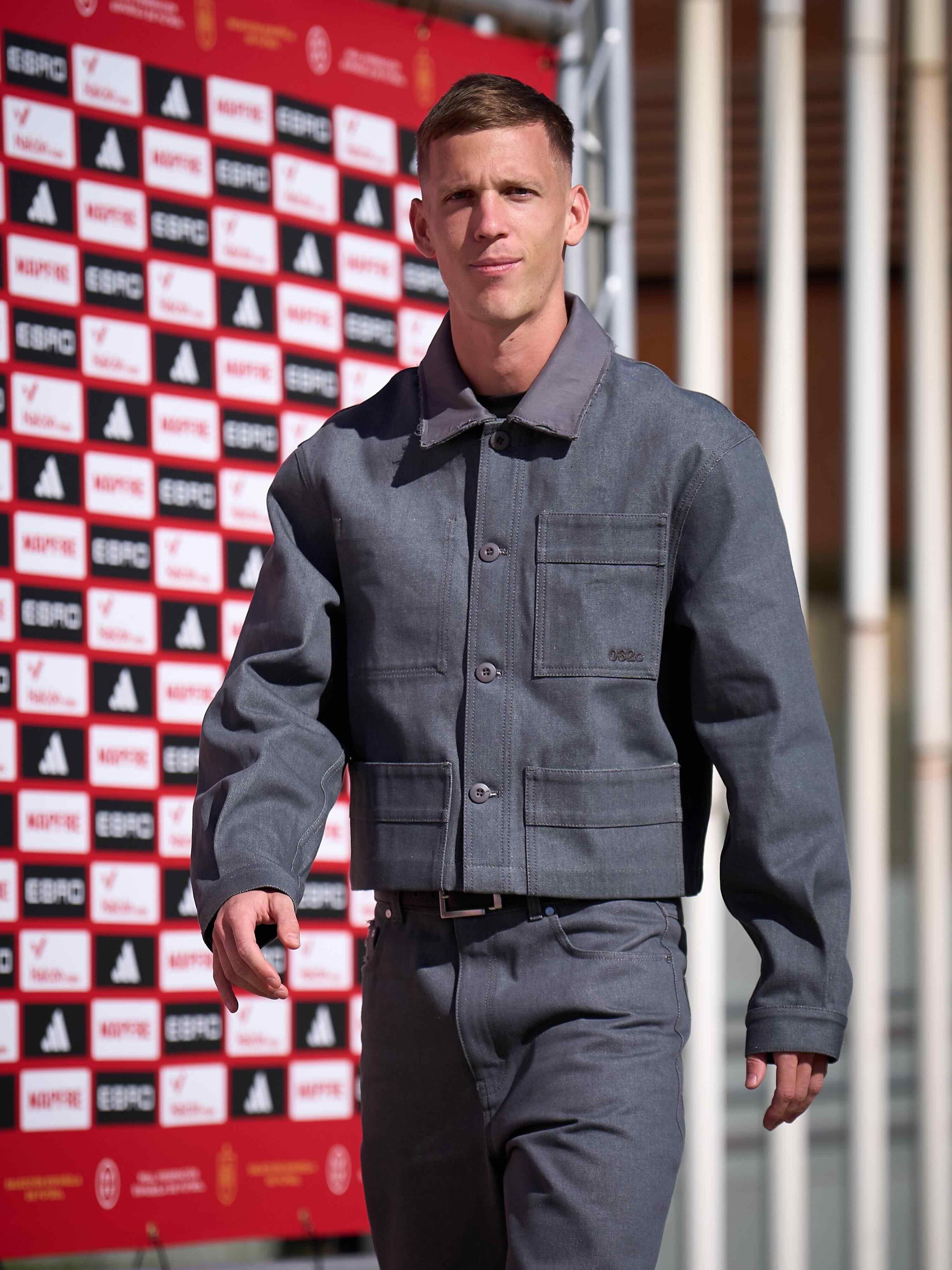
SA: Are there any mistakes that still haunt you?
DO: Not really. I don’t really remember that many mistakes in football or life. Of course, there are mistakes that you think about. Things that are easy to do that you missed because you relaxed too much—say, like an easy layup in basketball. But then you just need to have the vision and the focus to do better next time. Most of its psychological. The head is the biggest part of the game. I just try to keep improving without looking back so much.
SA: But do you ever look back at any of your biggest moments? What were they?
DO: I’d say the biggest moment of my career so far was this last summer, both with winning the Euros with the Spanish national team and also my transfer to Barcelona. People said the circle closed—I came back to Barcelona after 10 years. But for me, it was more open than ever. It was the start of a new journey. I’m able to be closer to my family and friends, but I came here to win. Such ambition is important. You can’t lose it.
SA: What’s the ambition now?
DO: To at least repeat what we did last year, the three titles in La Liga, the Cup and the Super Cup. Of course, winning the Champions League was the goal we had last season, and we arrived at the semifinals. This coming year, there’s also the World Cup with the national team. Those are a couple of things to look forward to and try to reach. But that’s why we’re here. That’s why we do it.
SA: You briefly referenced basketball as a metaphor. And this is another culture you embrace. You famously used the “Dame Time” celebration for some of your goals.
DO: For those who don’t know, it’s from Damian Lillard. I had the opportunity to meet him last winter, too. I’m a big fan. I really like how he plays. He’s so clutch.
SA: But why adopt Dame Time?
DO: I was talking to my friends about the celebration and we liked it so much. Nobody was doing it in football. But now I’m happy that people can recognize me with the celebration as well.
SA: But what does it mean to you? Is it about being clutch or more like “this is my time”?
DO: It’s open to interpretation, which I like.
SA: Are there similarities here, too?
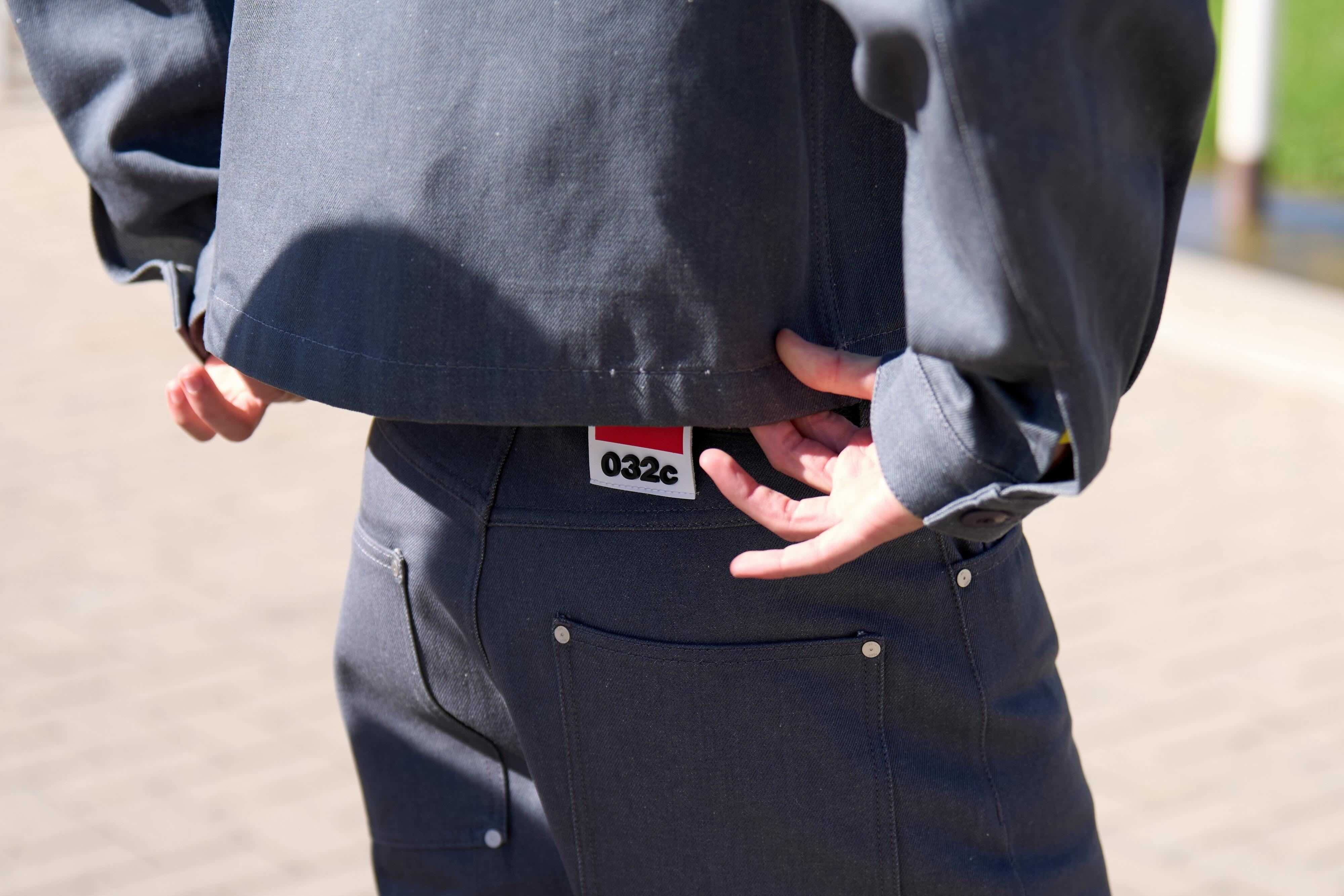
DO: Basketball and football are different, I think, because football is slower. In basketball, you have a new position every 24 seconds, so you can do a new action much more often. You touch the ball much more than in football. You know, there’s around 110 meters on the pitch, 22 players, and only one ball. It might be that you touch the ball very few times, but when you do, you have to be focused to improve the game of the team. Like I said, it’s all about responsibility and the trust we have in each other.
SA: So, trust is an important aspect in soccer.
DO: Yes. At the end of the day, we all know our position, you know? And we all know each other—how we play, how we move, how we like to do things. It’s important that we know what everyone can do and that we understand each other.
SA: Are those the two big lessons we can learn from soccer? Trust and responsibility?
DO: Yeah, I mean, we have a lot of responsibility. We are role models. There are millions of people watching, millions of kids doing the same celebrations. They’re trying to shoot like you, run like you, and act like you. We’re like a mirror for the next generation. This is something we really have to consider. It’s about setting a good example. And most of us know that.
SA: Does that create any pressure to be a certain way?
DO: Not really. I don’t feel that way because I never fake anything. I’m just me. And I just try to do things the right way. Of course, I’ll make mistakes, but the image you give should just be who you are.
SA: And what’s the image you want to give when wearing 032c Readytowear for this occasion?
DO: It’s just a brand I really like. I was also wearing it when I was at Leipzig.
SA: So, you’re into fashion?
DO: I’m getting into it more, but, you know, my girlfriend also helped me a bit. I like to try new things. And so, when all of the national players meet in Madrid, I’m going to wear some of the new arrivals. I like getting dressed up for this kind of thing. It seemed like the perfect excuse to wear 032c.
SA: Do you see yourself getting more involved in fashion in the future? Have you envisioned what life will be like after soccer?
DO: To be honest, I’m not really thinking about it right now. I’m 27 years old, you know? If everything goes right and I stay healthy, I still have another ten years of football. I think I’ll probably do something related to the sport because it’s what I love to do. I mean, I’m not going to become a professional chess player with a 1200 rating. [Laughter]. I’m using this time to continue to improve myself. And when I’m done with football, I’d also like to be recognized for how well I dressed.
Credits
- Text: Shane Anderson
- Creative Director: Michael Späth
Related Content
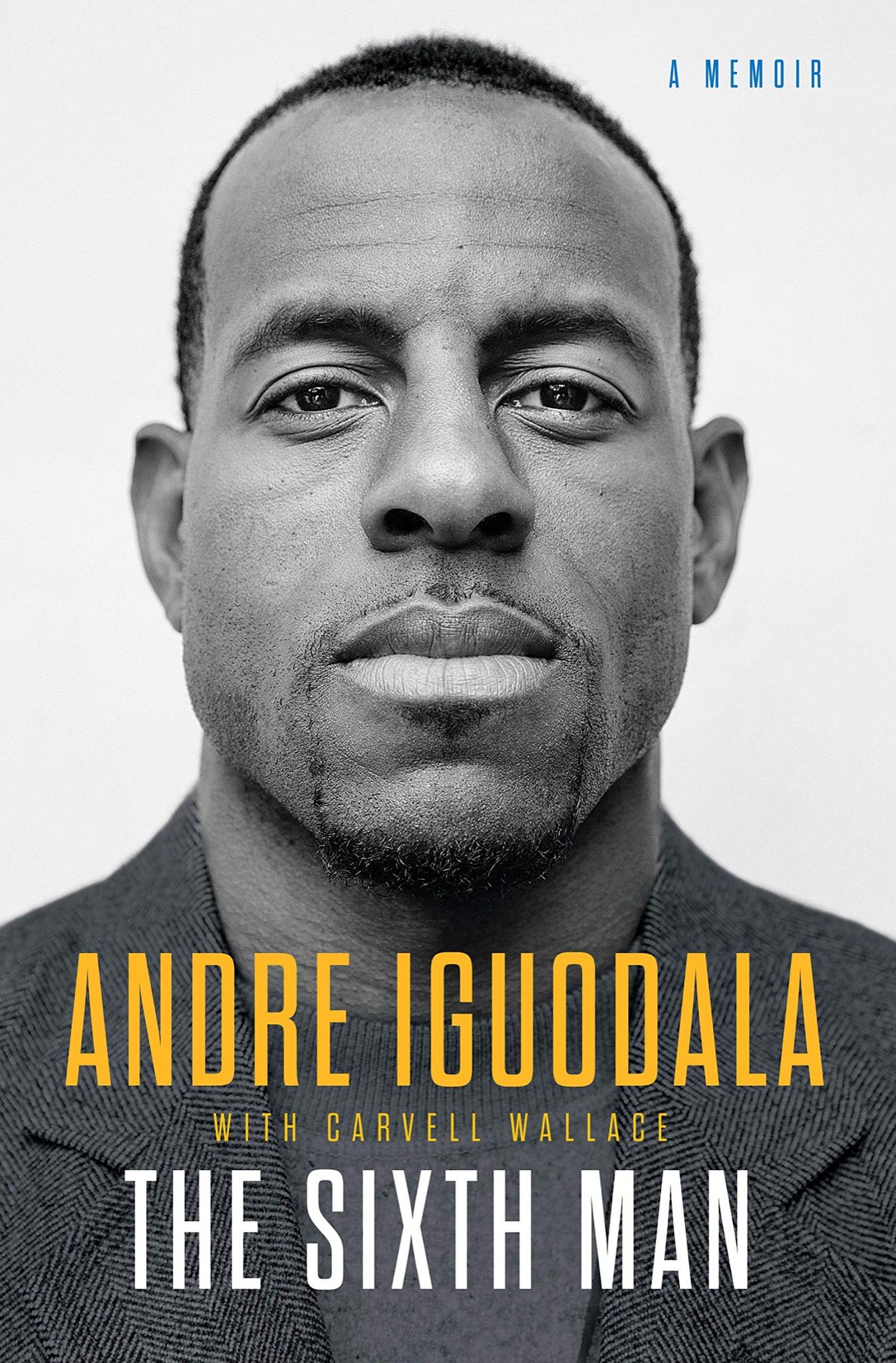
Interview: NBA star ANDRE IGUODALA talks sacrifice, freedom, and what needs to change
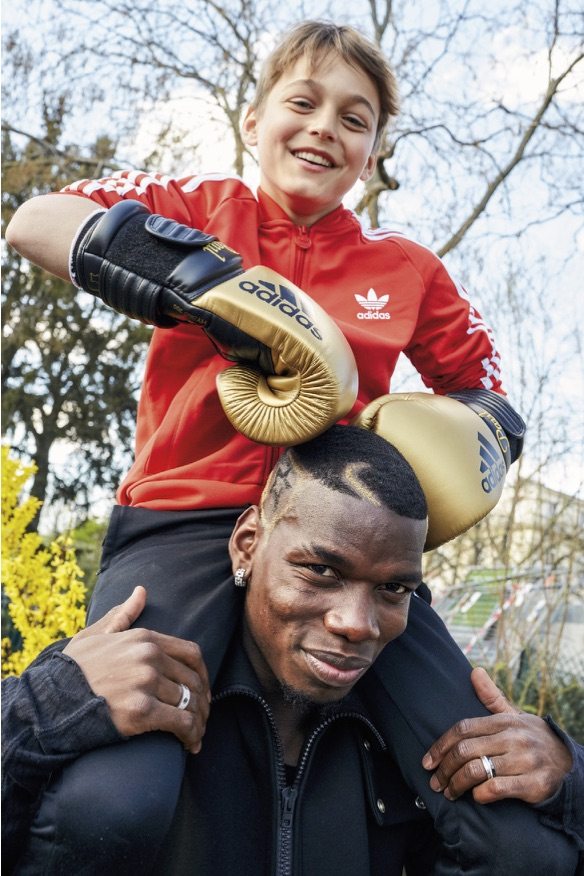
Soccer Star PAUL POGBA, JUERGEN TELLER and Son Kick it in Paris
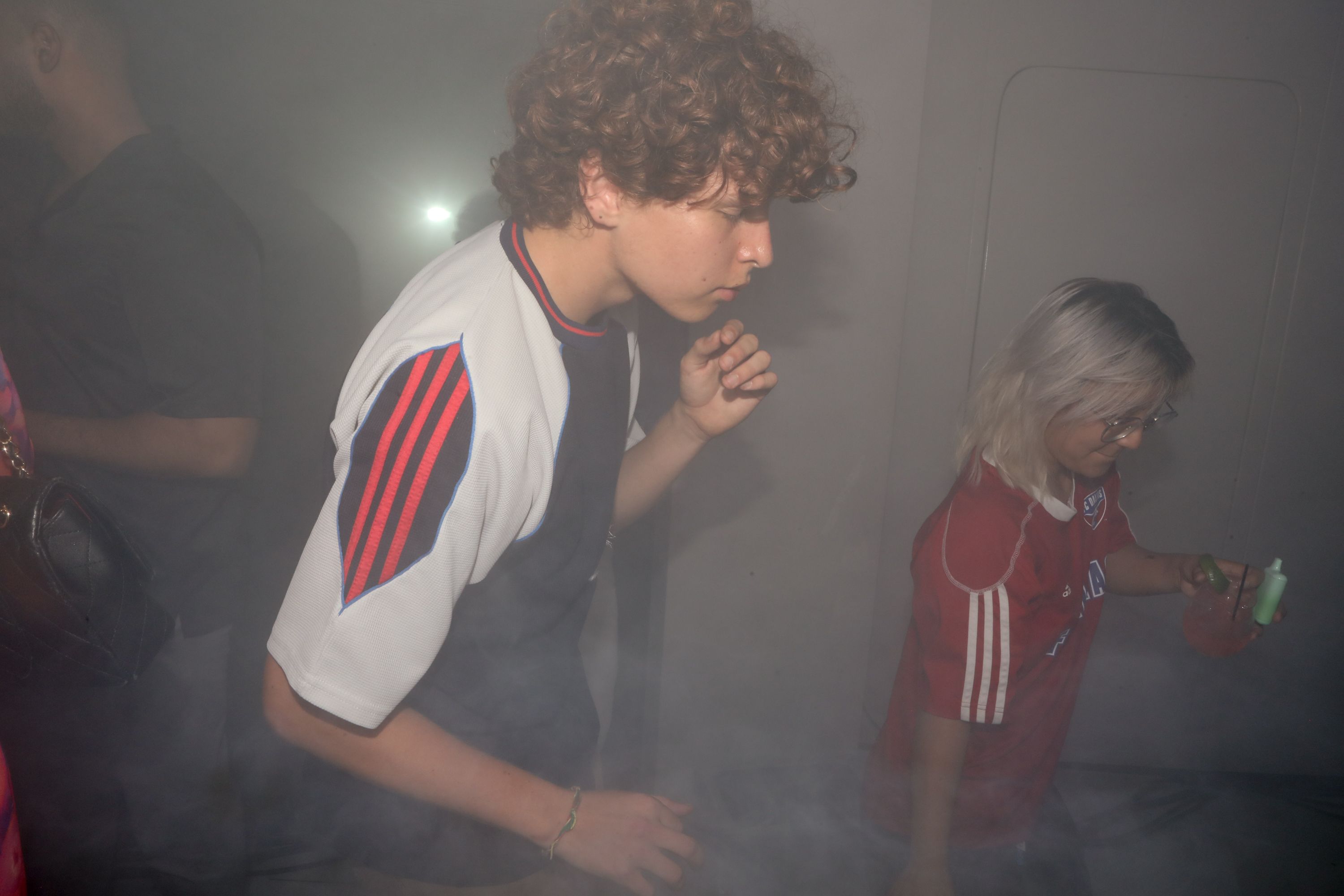
Juventus FC x 032c at Terminal 27, LA
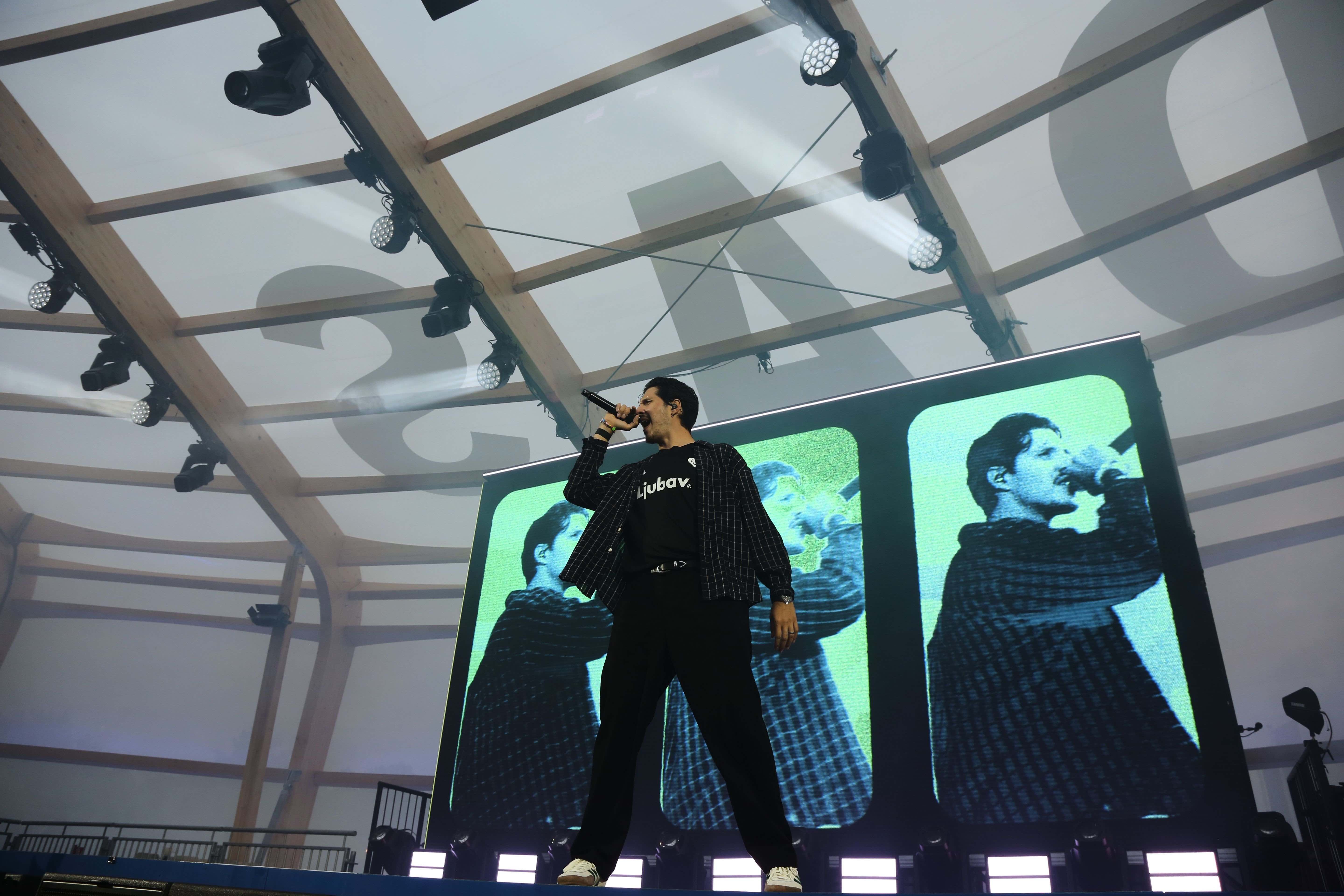
Life’s Game: the Home of adidas Football
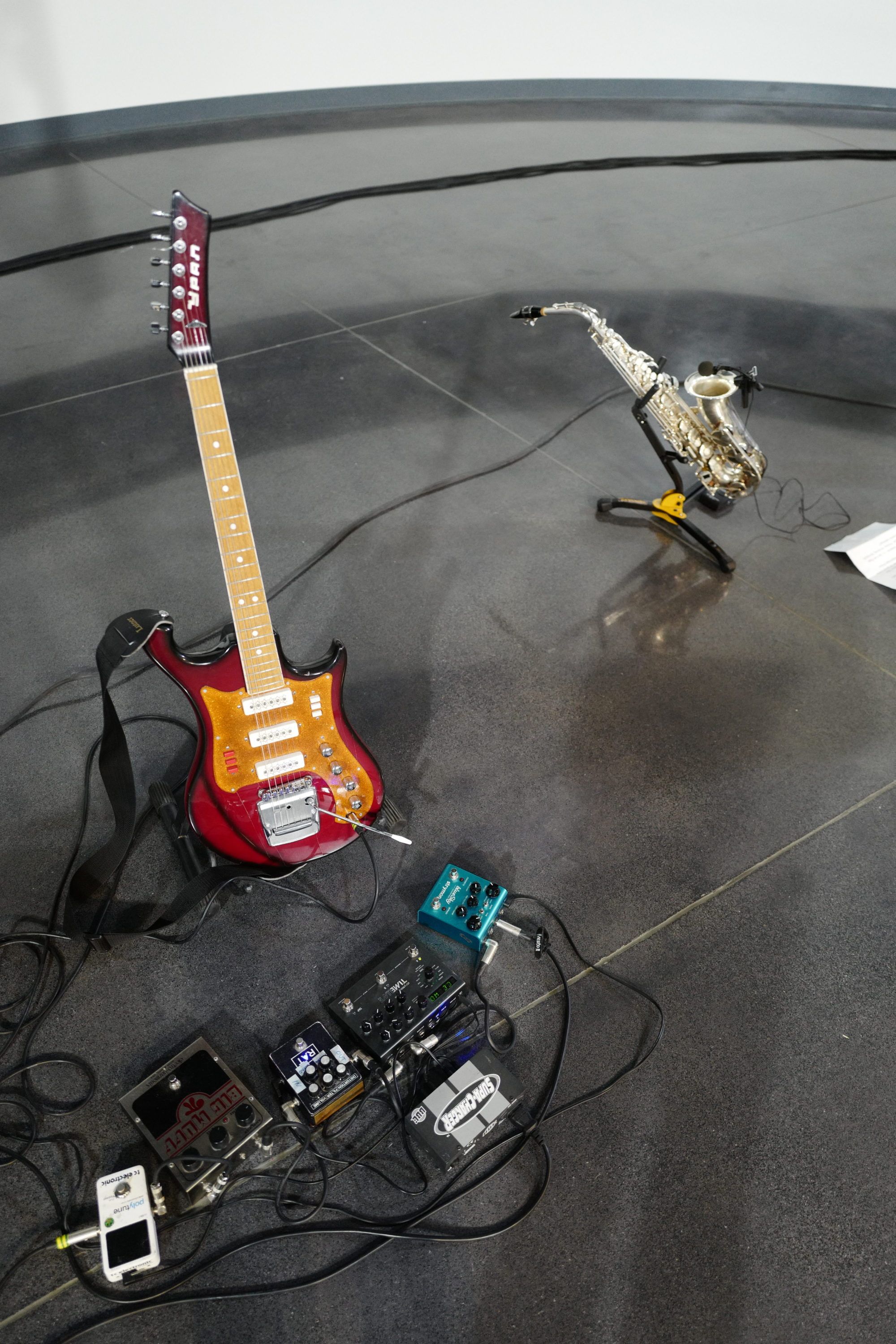
“Gudbay, America” – Behind-the-Scenes with Designer GOSHA RUBCHINSKIY
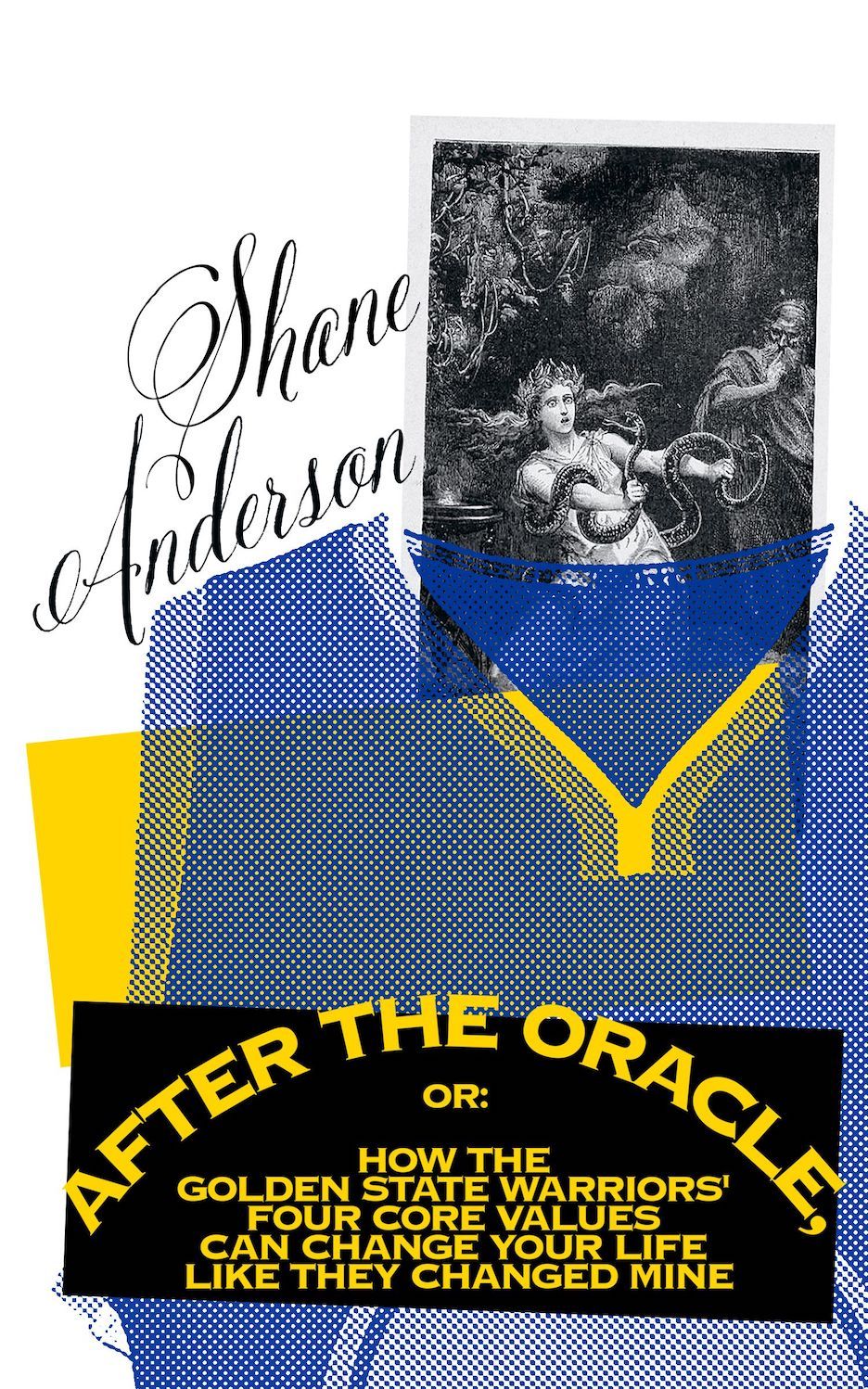
After the Oracle
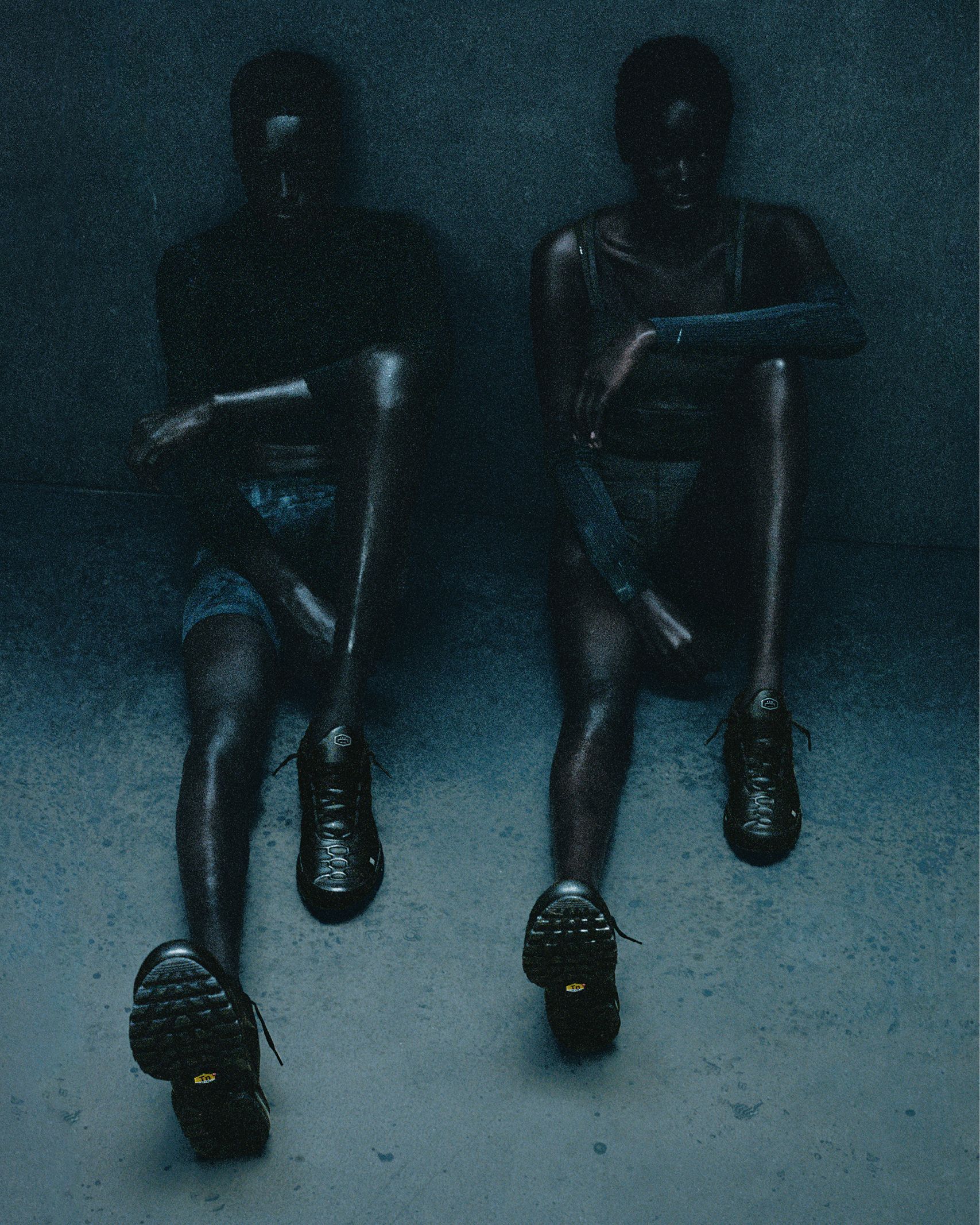
Never Growing Up: GABRIEL MOSES and SAMUEL ROSS’ ACW_NIKE TN98